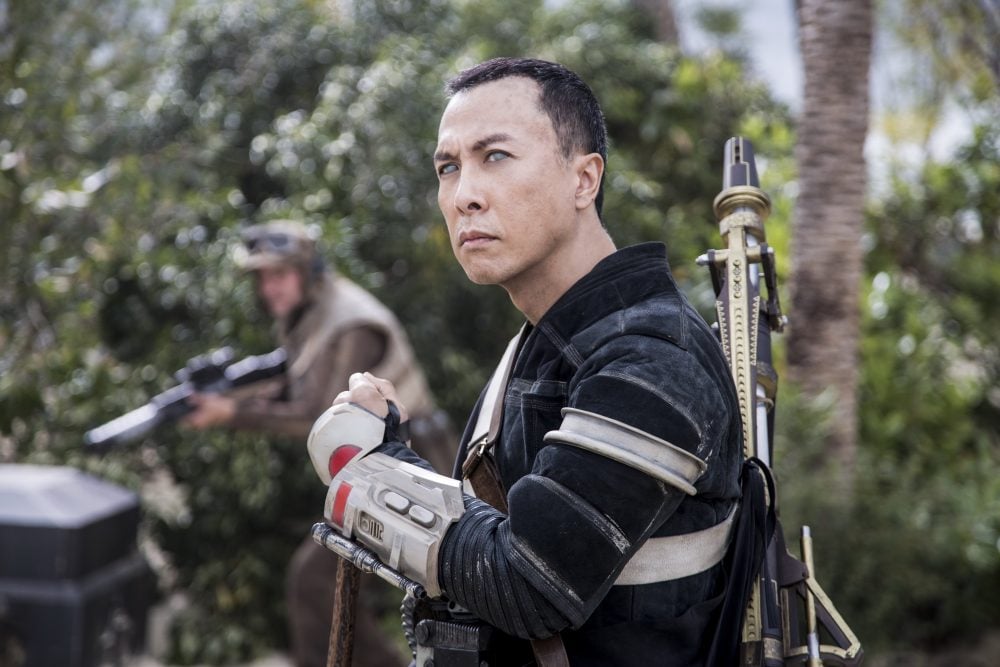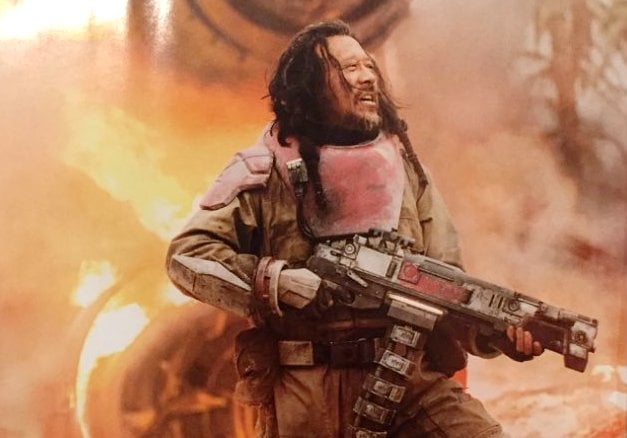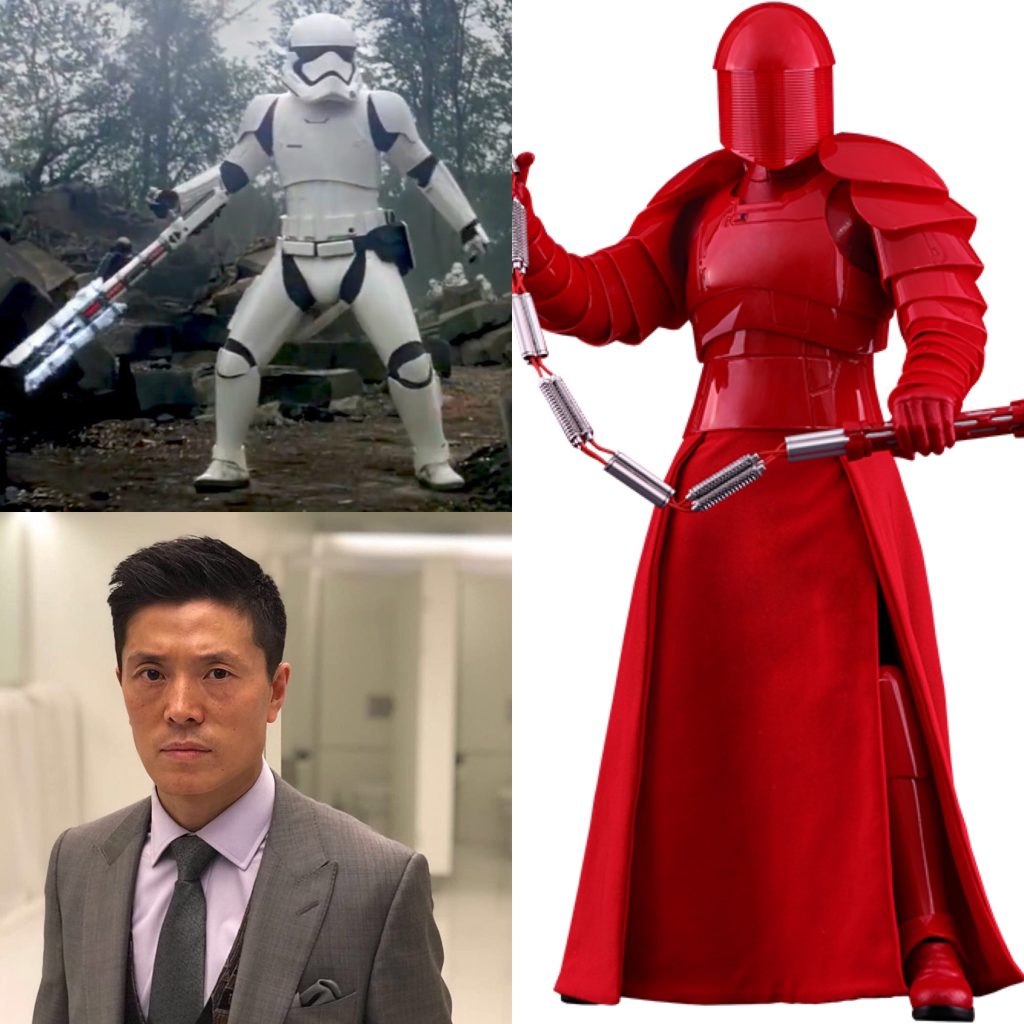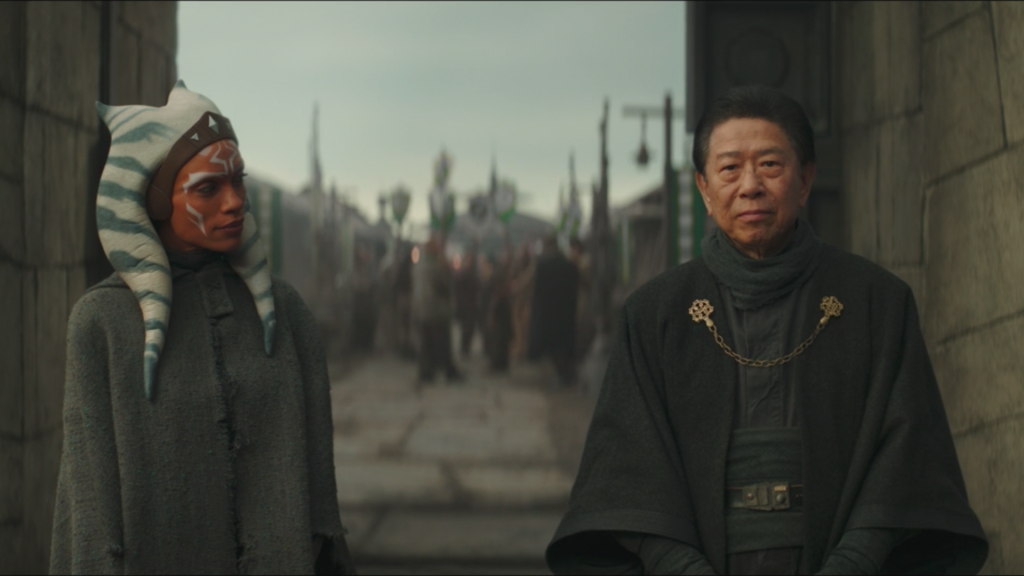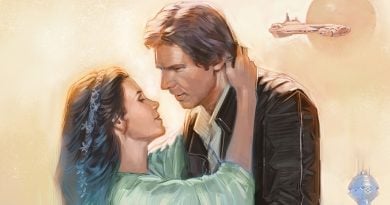Editorial: Celebrating Chinese New Year – Influences of Chinese Culture on the ‘Star Wars’ Universe and Vice Versa
Star Wars is a cultural phenomenon that has captivated audiences around the world since its debut in 1977. George Lucas’ epic space opera tells the story of a galaxy far, far away filled with unique and diverse characters and creatures. From the heroic Jedi Knights to the evil Empire, the Star Wars universe is one of the most beloved in popular culture.
In this article, we will briefly explore the relationship between Star Wars and China, including the films’ popularity in the country, the cultural impact of the franchise, and the ways in which it has influenced Chinese media and entertainment.
Overall popularity of Star Wars in China
Star Wars has long been popular in China even though the original trilogy didn’t release in the country until 2015 (sci-fi and fantasy fanatics managed to watch them through other means) as the lead-up to The Force Awakens. The prequel and sequel trilogies have been released in China to decent success, though the latest film, The Rise of Skywalker, fell well below Disney and Lucasfilm’s expectations with just $12.1 million during its opening weekend, eventually landing on the (very weak) $20.5 million mark for its entire theatrical run.
Despite middling box office performance in recent times, the films have gained a following in China. The Star Wars franchise includes a range of merchandise, such as toys, clothing, and collectibles, which are as popular among fans in the country as in other international territories. In addition, the franchise has inspired a number of video games, books, and comic books, which have also been enjoyed by Chinese fans.

Cultural Impact of Star Wars in China and vice versa
While reading up ahead of writing this piece, I came across some great articles like ‘Star Wars and China‘ that had a great paragraph about Star Wars being influenced by Eastern cinema, and indeed Star Wars creator George Lucas has often credited Asian influences on the decades-long franchise, particularly Japanese filmmaker and painter Akira Kurosawa’s 1958 film The Hidden Fortress.
It is well known that the construction of George Lucas’ Star Wars universe was influenced by Eastern film and culture, Darth Vader’s helmet and armour having been modelled on samurai armour. Character names such as Obi-Wan Kenobi, Qui-Gon Jinn and Kylo Ren, designed to convey a sense of non-earth otherworldliness, seem to sit linguistically somewhere between the Middle, and Far East. Perhaps it is no coincidence that whenever I hear Kylo Ren’s name I think of “gwai lo”, the colloquial Cantonese term for foreigner, literally “ghost person”.
Personally, I hadn’t really thought about it too much before, but I can definitely see it. The article I really took a lot from was this one, as I grew up a huge martial arts fan and have often thought the Force was similar to many concepts that are explored here:
The concept of the Force, and its creation of life, bears remarkable similarity to the Chinese principles of 元气, “Yuan Qi”, the primeval energy from which all things came into being, and the 道, Dao, the natural way in which all things operate, that is derives from Yuan Qi. It is one omnipresent energy, that connects all beings. The Dao (also known as “Tao”), is made of, or can be seen as having, a light, and dark side. The Yin and the Yang. For the Chinese, balance between these forces are vital, and without it, the world would be thrown into chaos. The growing of the Dark Forces in the Star Wars universe coincides with a weakening of the Force overall. The tale of the Skywalkers is one of legend, a prophecy of one who would come from the Force, in order to restore its balance.
Studying the Way of Dao, and harnessing the energy that is all around, supposedly allowed Daoist monks to achieve Jedi Knight-like powers, including kinesis and levitation, while some like He Xiangu and Tieguai Li, could apparently even heal the sick and have the power of foresight.
Archetypes from Chinese Wuxia also appear in the Star Wars universe. From the swamp that he lives in, the simple clothes he wears, to his wispy white hairs, bizarre manner and deportment, Yoda is in every sense the model of the ancient hermit master, a powerful kung fu master, underestimated and eccentric in his reclusion and decrepit appearance. How often have we seen a filthy character dismissed as a tramp or lunatic, that is, until they kick your ass?
On the other hand, the cultural impact of Star Wars in China cannot be overstated. The franchise has inspired a whole generation of Chinese sci-fi writers and filmmakers and has had a significant influence on Chinese pop culture. One of the most notable examples of this influence can be seen in the 2005 Chinese film The Promise, which was directed by Chen Kaige — a fantasy epic set in ancient China that features themes and elements that you could say are heavily inspired by Star Wars. It is loosely adapted from The Kunlun Slave, a wuxia romance story written by Pei Xing in the ninth century — wuxia fiction shares many traits with the branch of classical storytelling Star Wars is famous for. It was a huge success in China and helped to introduce Star Wars-style storytelling to a wider Chinese audience.
In addition to The Promise, Star Wars has also inspired several other Chinese films and television shows, including the popular TV series The Legend of the Condor Heroes, which features a number of Star Wars-style themes and narrative elements. But again, we can see common past influences that have informed both modern Chinese storytelling and Star Wars.
Influence of Star Wars on Chinese media and entertainment
The influence of Star Wars on Chinese media and entertainment extends beyond film and television. The franchise has also had a significant impact on the Chinese gaming industry. One of the most popular Star Wars-themed games in China is the massively multiplayer online role-playing game (MMORPG) Star Wars: The Old Republic, which has a large and dedicated player base in the country.
In addition to video games, Star Wars has added to the Chinese music industry as well. Several Chinese musicians have created their own Star Wars-themed songs and music videos, and the franchise has been referenced in a number of pop songs, like Lu Han’s “Inner Force” — he became the brand ambassador for Star Wars: The Force Awakens in China.
As explained in the first section, Star Wars also seems to be viewed as not very successful in China by a lot of people, but I am not here to talk about that. Here are a couple of articles I enjoyed reading on the subject: ‘How Star Wars can reconnect China‘ and ‘Why Star Wars Keeps Bombing in China‘.
Chinese Actors who have appeared in the films and series
Over the course of the movies and live-action and animated shows, there has been several renowned Chinese actors in them; here are some who appeared in the Star Wars galaxy across all films and TV series in all sorts of roles.
First up is a personal hero of mine and (arguably) the most famous of the lot…
Donnie Yen
Donnie Yen is a Hong Kong actor, martial artist, film director, and producer. He is one of the most successful and influential actors in the history of Hong Kong cinema, and has won numerous awards for his performances. Yen is known for his roles in films such as Ip Man, Hero, Sha Po Lang, and Rogue One: A Star Wars Story, where he played the character of Chirrut Îmwe. He also has choreographed fight scenes for many of his films. In addition to his acting career, Yen has worked as a film director and producer, and is widely respected for his contributions to the film industry.
Jiang Wen
Jiang Wen is a Chinese actor, screenwriter, and film director. He is one of the most respected and influential actors in the history of Chinese cinema, and has won numerous awards for his performances. Wen is known for his roles in films such as Red Sorghum, Devils on the Doorstep, Rogue One — where he played Baze Malbus — and Let the Bullets Fly. He is widely regarded as one of the most talented and innovative filmmakers working in the Chinese film industry today.
Liang Yang
Liang Yang is a Chinese stunt performer and actor who has worked on several high-profile film and television productions. He is known for his exceptional physical abilities and his willingness to perform challenging and dangerous stunts. Yang has worked as a stunt performer on films such as The Grandmaster, Crouching Tiger, Hidden Dragon: Sword of Destiny, and Kong: Skull Island, and has also appeared in small acting roles in some of these productions. In addition to his work in film and television, Yang is a skilled martial artist as well, and has trained in a variety of martial arts disciplines. He is widely respected within the film industry for his professionalism and strong dedication to his craft.
He played the infamous First Order trooper FN-2199 in Star Wars: The Force Awakens, where he also helped coordinate the film’s fight sequences. Additionally, he acted as one of the Praetorian Guards in The Last Jedi and worked on stunts for Rogue One and Solo.
Gabby Wong
Gabby Wong is a Hong Kong actress and singer known for her versatility. She has played a wide range of roles in both comedic and dramatic productions. Wong has appeared in films such as A Simple Life, Love Undercover, and Central Affairs, and has also worked as a stage actress, appearing in several productions in Hong Kong and around the world.
She portrayed Wona Goban in Rogue One: A Star Wars Story — the character was only identified as Wona Goban in Rogue One: The Ultimate Visual Guide, as the film’s end credits list Wong as portraying Gold Nine (callsign).
Wing T. Chao
Wing Tao Chao (born May 1944) is a Chinese-born American architect, master planner, construction developer, hospitality professional, and former Disney Imagineer. As an Imagineer, Chao helped in Disney’s expansion in markets such as China and Hong Kong, handling businesses worth more than $12 billion USD. He was with Disney for over 37 years, from 1972 to 2009, and led over 100 projects, including Disneyland resorts, luxury hotels, and cruises.
Chao has appeared in two television shows produced by Disney: The Imagineering Story as himself (2019) and The Mandalorian as Governor Wing (2020).
Conclusion
As we have seen, Star Wars is more than just a popular film franchise in China. It has had a significant cultural impact on the country, inspiring a whole generation of Chinese filmmakers and influencing a wide range of media and entertainment projects. From its influence on Chinese film and television to its impact on the gaming and music industries, it is clear that the galaxy far, far away has a special place in the hearts of Chinese fans and artists.
Alexander has been a lifelong Star Wars fan having started watching with his elder brother in the early 80's through to watching The Phantom Menace with same brother in cinema as a 21 year old with beer.
His love for the franchise has never waned.
A published comic book writer and letterer but when not watching or reading Star Wars is usually hacking computers for work.
Follow on twitter @Muldwych


